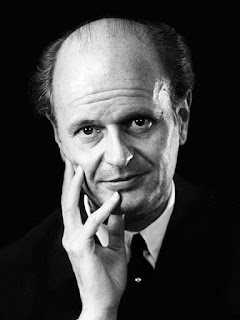Composer: Antonín Dvořák; Bedřich Smetana; Franz Liszt
- Dvořák - Symphony No. 9 in E minor, Op. 95 - "From the New World"
- Smetana - The Moldau (from Má Vlast)
- Liszt - Les Préludes, symphonic poem No. 3, S. 97 (after Lamartine)
Berlin Philharmonic Orchestra
Radio-Symphonie-Orchester Berlin
Ferenc Fricsay, conductor
Date: 1960; 1959
Label: Deutsche Grammophon
-----------------------------------------------------------
A classic! Fricsay’s “New World” remains one of the most passionate and spontaneous available. Its noteworthy features include a really dramatic opening movement, a gorgeously sung Largo, a sharply rhythmic scherzo, and a grandly imposing finale sporting a couple of hugely exciting climaxes. Like few others, Fricsay had the secret of communicating a very wide-ranging flexibility of tempo without compromising rhythmic security or the long melodic line. You can hear this very clearly in the symphony’s first movement, from the second subject on through the development and up to the recapitulation. This performance hasn’t dated a bit, either interpretively or sonically, and there have been quite a few competitors since.
The couplings, a swiftly flowing Moldau and a spectacularly virile and cogent Les Préludes, have held up equally well. Few stereo recordings emanated from the baton of this genuine giant of the podium, and that makes what little we have all the more precious. I truly hope that DG gives “originals” treatment to his remaining Beethoven symphony recordings, and also to his stereo Tchaikovsky Sixth Symphony. They should be permanent fixtures in the catalog. Until then, enjoy this marvelous taste of Fricsay’s immortal art.
— David Hurwitz
-----------------------------------------------------------
Antonín Dvořák (September 8, 1841 – May 1, 1904) was a Czech composer. He was the second Czech composer to achieve worldwide recognition, after Bedřich Smetana. Following Smetana's nationalist example, many of Dvořák's works show the influence of Czech folk music, such as his two sets of Slavonic Dances, the Symphonic Variations, and the overwhelming majority of his songs. Dvořák wrote in a variety of forms: nine symphonies, ten operas, three concertos, several symphonic poems, serenades for string orchestra and wind ensemble, more than 40 works of chamber music, and piano music.
***
Bedřich Smetana (2 March 1824 – 12 May 1884) was a Czech composer who pioneered the development of a musical style which became closely identified with his country's aspirations to independent statehood. The basic materials from which Smetana fashioned his art, according to Newmarch, were nationalism, realism and romanticism. He is thus widely regarded in his homeland as the father of Czech music. Internationally he is best known for his opera The Bartered Bride and for the symphonic cycle Má vlast ("My Homeland"), which portrays the history, legends and landscape of the composer's native land.
***
Franz Liszt (October 22, 1811 – July 31, 1886) was a prolific 19th-century Hungarian composer, virtuoso pianist, conductor, and music teacher. Liszt gained renown in Europe for his virtuosic skill as a pianist and in the 1840s he was considered to be the greatest pianist of all time. As a composer, Liszt was one of the most prominent composers of the "New German School". Some of his most notable musical contributions were the invention of the symphonic poem, developing the concept of thematic transformation as part of his experiments in musical form, and making radical departures in harmony.
***
Ferenc Fricsay (9 August 1914 – 20 February 1963) was a Hungarian conductor. Born in Budapest, his teachers included Hungary's most famous composers: Béla Bartók, Zoltán Kodály, Ernő Dohnányi and Leó Weiner. Fricsay spent much of his time from the 1950s onward in Germany as conductor of the Bavarian State Opera, the RIAS Symphony Orchestra, the Deutsche Oper Berlin and the Berlin Philharmonic, recording for the Deutsche Grammophon record label. He was known for his interpretations of the music of Mozart and Beethoven, as well as that of his teacher Béla Bartók and Zoltán Kodály.
-----------------------------------------------------------





Choose one link, copy and paste it to your browser's address bar, wait a few seconds (you may need to click 'Continue' first), then click 'Free Access with Ads' / 'Get link'. Complete the steps / captchas if require.
ReplyDeleteGuide for Linkvertise: 'Free Access with Ads' --> 'Get [Album name]' --> 'I'm interested' --> 'Explore Website / Learn more' --> close the newly open tab/window, then wait for a few seconds --> 'Get [Album name]'
https://link-target.net/610926/aYweE6997935783
or
https://uii.io/22KzqLH
or
https://cuty.io/OMZdajPAmlh
Thanks a lot 😄 🎊
ReplyDelete¡Muchas gracias, Ronald!
ReplyDelete